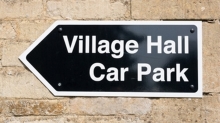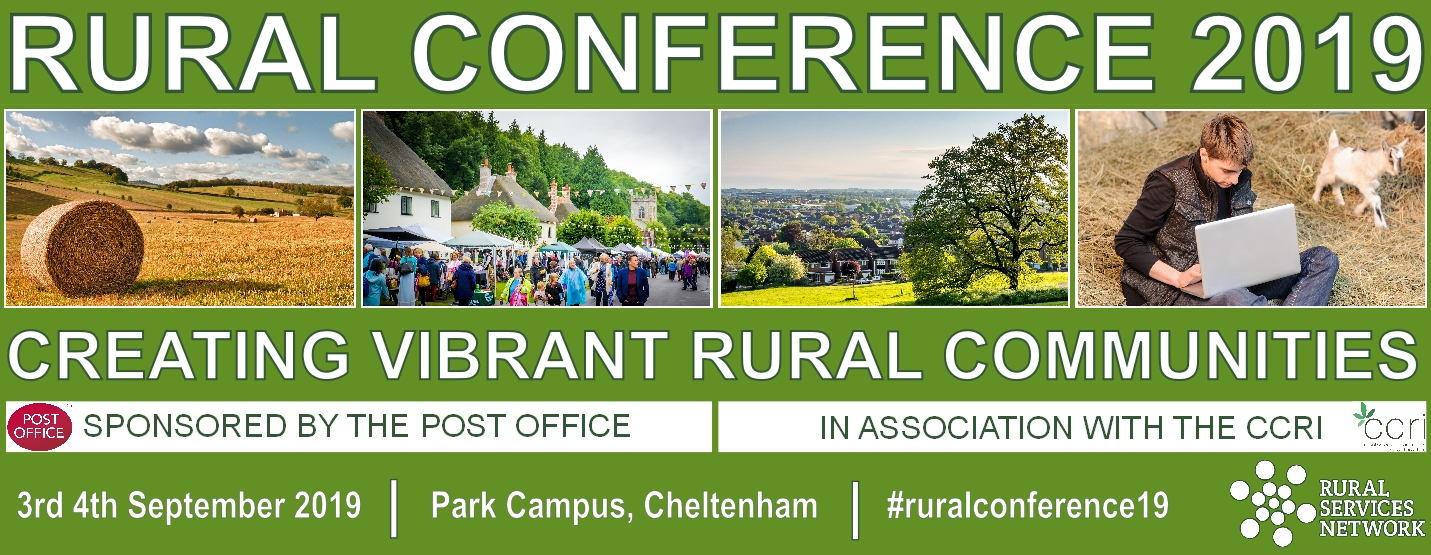T: 01822 851370 E: [email protected]
Visit RSN Survey about life in rural England to find out more.
Spotlight on Heart of the Village - October 2019
 This newsletter is provided by the Rural Services Network.
This newsletter is provided by the Rural Services Network.
It includes a roundup of rural stories featuring on rural communities and village services.

Councils warn planning system bypassed in rural areas
 A rise in the number of barn conversions means that rural communities are missing out on essential infrastructure and local services, according to the Local Government Association (LGA).
A rise in the number of barn conversions means that rural communities are missing out on essential infrastructure and local services, according to the Local Government Association (LGA).
Retailers call for action as shop closures soar
The Guardian covers news that retailers and unions have called for government action after new data shows the number of empty shops, pubs and restaurants is ‘rising at the fastest pace in nearly a decade’. Analysis by PwC and the Local Data Company demonstrates that roughly 16 stores closed every day in the first six months of 2019.
Disproportionate impact of high street decline
 The decline of UK high streets has disproportionately impacted women and people outside of London, according to the Independent
The decline of UK high streets has disproportionately impacted women and people outside of London, according to the Independent
A new report by the Royal Society for the encouragement of Arts, Manufactures and Commerce (RSA) has found that women comprise almost three-quarters of the loss of 108,000 retail jobs over the last seven years, while 40,000 new e-commerce warehouse roles have mostly gone to men.
App helps emergency services identify those lost in rural areas
The Telegraph reports on a new app called what3words, which is being used by emergency services to identify people lost in rural areas
It was co-created by Chris Sheldrick, who developed an interest in postcodes and location services after visitors to his childhood home in rural Hertfordshire were ‘rarely able to locate [the] house’.
Rural Heart of the Village in the NEWS
 EU funded North York Moors schemes prove success despite Brexit (23 Sept 2019)
EU funded North York Moors schemes prove success despite Brexit (23 Sept 2019)
A MULTI-million pound European Union-funded scheme to generate jobs and aid economic growth in and around a national park has fulfilled its aims, despite being repeatedly affected by Brexit. (Northern Echo)
Countryside Litter in the Spotlight (2 Sept 2019)
Images have been shared on social media which highlights the blight of rubbish in the countryside after a sheep was found with a drinks can stuck in its mouth.
The issue of litter in the countryside and its effects on livestock has been cast in the spotlight after the images were shared. (Farming UK)
Could affordable housing be aided by LPG? (Aug 12 2019)
Positive initiatives and efficient processes are needed to help the sector deliver the number of homes that Brits can pay for. This article explores how LPG is assisting in the provision of affordable housing for UK buyers. (Open Access Government)
Rural Conference 2019
 We recently held our National Rural Conference in Cheltenham at the University of Gloucestershire. This year we focused on ‘Creating Vibrant Rural Communities’.
We recently held our National Rural Conference in Cheltenham at the University of Gloucestershire. This year we focused on ‘Creating Vibrant Rural Communities’.
There were sessions on the Rural Economy, Rural Housing, Rural Transport and Rural Health and Wellbeing, all elements of a Vibrant Rural Community. The Rt Hon Lord Foster of Bath, the Chair of the House of Lords Select Committee on the Rural Economy came to deliver the keynote speech. All of the presentations are now available on our website at this link
RSN Observatory
 The RSN Observatory provides a statistical overview of rural life. It provides analyses and comment on key service provision and issues affecting rural communities.
The RSN Observatory provides a statistical overview of rural life. It provides analyses and comment on key service provision and issues affecting rural communities.
It includes information on housing, the economy and local services.
Housing Survey
The RSN is currently conducting a survey on Affordable Housing Thresholds.
Call for evidence on the impact of changes to site thresholds for affordable housing contributions on policy and delivery of rural affordable housing
Following the report of the House of Lords Inquiry into the Rural Economy the Government has sought the views of rural interest groups on how it could improve the delivery of rural affordable housing. Encouraged by discussions at a Ministerial Round Table and meeting with HMT we are continuing to call for changes to national planning policy and guidance so Local Planning Authorities can set their own thresholds for on-site affordable housing contributions in their rural areas. We are now asking for your input to help us update the evidence base so we can make a robust case to support this call. To that end we would be very grateful if you could complete the attached very short, mainly tick box, survey by Monday 14th of October.
If you have any questions relating to the survey, please contact Jo Lavis - [email protected]
Analysis and commentary from the RSN
If prevention is better than cure, what more can be done to prevent rural ill health
A crisis-focused system has developed in health and care which is not only costly but also places enormous pressure on services. While efforts have focused on meeting immediate and acute demand, ill-health is not always inevitable and can often be prevented. In July 2019 the Government published a Prevention Green Paper setting out how it wants to prevent ill-health over the next decade. With Government prioritising prevention for the NHS and social care, what can we learn from our history of public health?
Jessica Sellick investigates.



